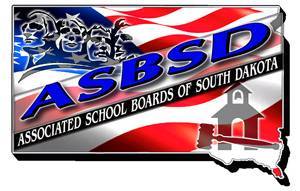Week eight marked the penultimate week of the 88th legislative session and, like the second to last episode of a season in a TV series, it set up plenty of intriguing plots with guns in schools, funding and new developments left to be decided by legislators.
Senators send Sentinel bill back to House
Senators passed an amended version of House Bill 1087, which would allow school employees and volunteers to carry guns in and on school grounds, on a 21-14 vote on Wednesday.
HB 1087 heads to the House floor for approval of the amended version or Representatives can choose to create a conference committee to further discuss the amendments with Senators.
If the amended version is passed by Representatives, the bill would head to Gov. Dennis Daugaard for signature or veto. If signed into law, voters could refer the bill for a vote in November.
-
Appointment of the state’s Standards and Training Commission to oversee firearms training required for non-law enforcement agents filling the sentinel role.
-
Provides a waiver of liability to the state’s Attorney General Office and local law enforcement agencies with jurisdiction over a school district where a sentinel program is established.
-
Allows voters in the district to refer a school board’s decision on implementing, or not implementing, a sentinel program to a vote.
ASBSD is opposed to the bill.
Busy week for K-12 funding bills
This week the House Appropriations committee held hearings on three bills related to three different areas of K-12 education, but deferred action until next week.
Senate Bill 28 adjusts property tax levies for the general fund of a school district and is the main vehicle for providing school districts with the proposed three percent increase to state aid. The bill would even out the state-to-local effort for funding education.
SB 28 sets the commercial levy at $9.163, up $0.535, decreases the agricultural levy by $0.24, to $2.082, and increases the owner-occupied levy by $0.25, up to $4.279.
Senate Bill 76 appropriates funding for Education Service Agencies. ESAs would have to apply to the Department of Education to receive the funds.
Senate Bill 229 would appropriate funds for CTE programs. The bill currently has a $1 dollar attached to it, but bill sponsor Sen. Billie Sutton (21), would like to see $1.5 million provided for the programs. Funding from the bill would not be ongoing. House Appropriators deferred a similar bill to the 41st legislative day a week ago.
Appropriators will hear three more funding related bills on Monday that were deferred to them by the House Education committee.
Senate Bill 15 raises the property tax levies for the special education fund of a school district by $0.15, with the maximum level set at $1.552 per thousand dollars of taxable valuation and the state aid qualifying level at $1.352. A state-to-local effort ratio would be set at approximately 39-61 percent.
SB 15 also allows school districts to use up to 15 percent of their special education fund dollars to identify K-12 students who need additional academic and behavioral interventions and caps the Extraordinary Cost Fund at $5.5 million.
Senate Bill 159 provides school districts with increased state aid for each Limited English Proficiency student.
SB 159 would provide a 1 percent increase, which is considered temporary until funds available are determined. The bill was introduced with a 25 percent increase, which would provide approximately $1,100 per ESL student.
Senate Bill 233 establishes a critical needs teaching scholarship and creates a trust fund program for student’s working towards a teaching degree in a critical needs curriculum area. Sen. Tim Rave (25) has requested $5 million in one-time dollars from the general fund to start the scholarship’s trust fund, which he said would supply 11-15 scholarships each year.
Revenue forecast presented
State Economist Jim Terwilliger and LRC Chief Fiscal Analyst Fred Schoenfeld presented appropriators with an updated picture of state revenue.
The projections are close those provided in December during Gov. Dennis Daugaard’s State of the State address. Appropriators will decide which numbers to adopt on Monday.
Revenue projections are not expected to affect the proposed three percent increase to state aid and ASBSD is cautiously optimistic one-time dollars will be provided.
Proposed hoghouse bill has ed. funding implications
A bipartisan group of legislators rolled out an economic development plan dubbed the Building South Dakota fund, which will be introduced as Senate Bill 235.
The plan includes the creation of the Workforce Education fund under the umbrella of the Building South Dakota fund.
Thirty percent of the dollars in the Building South Dakota fund would be appropriated to the Workforce Education fund for support of ESL students, CTE equipment and services, technology upgrades and other expenses preparing students for the workforce.
SB 235 is scheduled for a hearing in House State Affairs.
For updates on all of the legislation, check the ASBSD blog and bill tracker.
